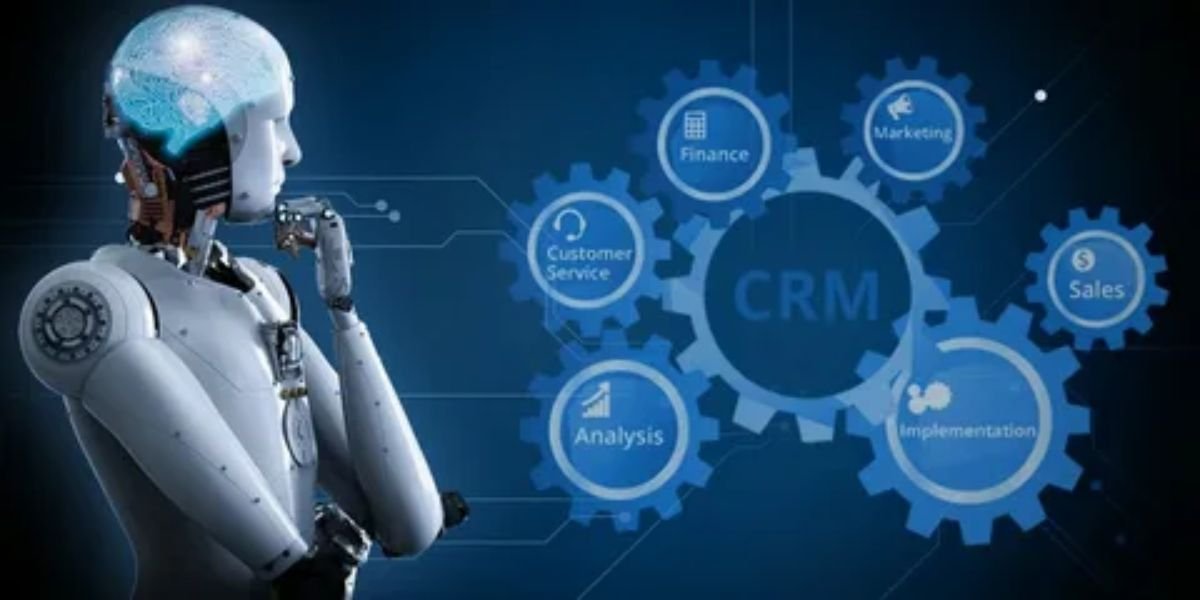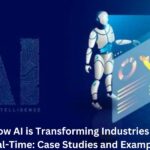The biggest change in marketing today is that consumers expect companies to know exactly what they need, exactly when they need it. This level of extreme personalization is impossible for human teams alone.
The truth is, if your marketing team isn’t using AI in marketing right now, you are already falling behind. Artificial intelligence in marketing is a powerful engine that analyzes billions of data points.
It is the key to creating personalized experiences that connect deeply with customers and drive massive growth.
Key Takeaways
- Massive Growth: The global AI marketing industry is worth over $47 billion in 2025 and is growing fast.
- High Adoption: About 88% of marketers now use AI tools daily, showing it has become standard practice.
- Top Benefits: AI’s best roles are delivering hyper-personalization, automating content creation, and increasing ROI through predictive analytics.
- The Big Risk: The biggest challenge is making sure AI does not create biases that unfairly target certain customer groups or violate privacy laws like GDPR.
Introduction to AI in Marketing
The days of mass advertising—sending the same message to everyone—are over. Today, every customer expects a tailored experience. This is why AI marketing is so vital. It uses computer science to process information from every interaction a customer has with a brand.
This data comes from websites, emails, social media, and more. AI then predicts what the customer will do next and automatically sends the perfect message at the perfect time. This shifts marketing from simple guesswork to a precise science.
What Is AI in Marketing?
AI in marketing refers to using technologies like Machine Learning and Deep Learning to make smart, automated decisions based on real customer data. It is a set of programs that constantly learn from past marketing successes and failures. These systems analyze patterns to figure out the best headline, the best product recommendation, and the best time to send an email.
For example, AI can analyze a user’s shopping history and browsing speed. It then instantly changes the website to show the products that person is most likely to buy. This gives marketers superhuman abilities to target their efforts.
Key Roles of AI in Modern Marketing
Artificial Intelligence plays several critical roles that fundamentally change how marketing is done in the modern world. It takes over the heavy lifting of data analysis and repetitive tasks.
Hyper-Personalization
This is arguably the most important role. AI analyzes individual customer data—like purchase history, location, and behavior—to create a unique experience for each person.
- It helps recommend products that are a perfect match for the user, not just popular items.
- AI ensures that ads are only shown to the precise audience most likely to convert, boosting results by up to 37%.
Content Automation and Creation
AI dramatically speeds up the creation of various marketing materials. It handles the early drafts of content, saving human writers valuable time.
- Tools like ChatGPT and Jasper AI can quickly generate email subject lines, ad copy, and blog post outlines.
- My personal insight is that while AI writes faster, human marketers must still check, edit, and add their unique voice to keep the brand authentic.
Predictive Analytics
AI uses past data to forecast future customer actions. This is key to efficient spending.
- It identifies which customers are most likely to leave a brand (churn risk) so marketers can step in with a retention offer.
- AI helps determine the exact budget needed for a specific ad channel to reach a certain sales goal.
Practical Applications of AI in Marketing
You can see AI for marketing being used every day in many different ways across the internet and beyond.
Optimizing Advertising Campaigns
AI takes control of bidding and placement in digital ad platforms (like Google and Facebook).
- It automatically adjusts ad budgets in real-time. It shifts money to the ads that are performing best, often every few minutes.
- AI can test thousands of different ad creatives (pictures, headlines, body text) at once to find the perfect combination.
Enhancing Customer Experience (CX)
AI powers tools that make customer service fast and available 24/7.
- AI-powered chatbots will handle up to 95% of customer interactions by 2025. They answer simple questions instantly.
- AI can analyze customer feedback (sentiment analysis) to tell a company exactly how people feel about a new product launch.
Dynamic Website Optimization
The AI changes the website content based on who is viewing it.
- It shows different homepage banners, calls-to-action (CTAs), or special offers to different visitors.
- An example would be showing a ‘Free Shipping’ offer to a first-time visitor but showing a ‘Loyalty Discount’ to a repeat customer.
Top AI Tools and Technologies for Marketers
The market is full of powerful marketing AI tools that help professional marketers daily.
| Tool Category | Function and Examples |
| Content Generation | Creates written copy, images, and video scripts. Examples: ChatGPT, Jasper AI, Midjourney. |
| SEO Optimization | Analyzes competitor content and suggests improvements for search rankings. Examples: Surfer SEO, Semrush. |
| Design & Visuals | Quickly generates graphics, removes backgrounds, or creates video clips. Examples: Canva Magic Studio, Lumen5. |
| Automation & CRM | Manages customer data, sends personalized emails, and builds automated workflows. Examples: HubSpot Marketing Hub, ActiveCampaign. |
Benefits of Using AI in Marketing
Using AI and marketing wisely provides significant competitive advantages that are hard to beat.
- Higher ROI: Companies using AI report an average ROI of 300% from their marketing efforts. This shows how effective AI is at spending money wisely.
- Increased Efficiency: AI automates tasks that used to take human teams days or weeks. This frees up human staff to focus on big-picture strategy and creative ideas.
- Superior Customer Insight: AI marketing analytics can uncover hidden trends and patterns in customer data that no human could ever spot. This leads to much better product development and messaging.
Challenges and Ethical Considerations
While the power of AI is great, it brings major challenges that marketers must handle responsibly.
Data Privacy and Transparency
AI relies on huge amounts of personal data. This raises serious ethical and legal concerns.
- Companies must be completely transparent about what data they collect and how they use it, following rules like GDPR.
- A major risk is the misuse of data. Forrester warns that one-third of companies could hurt customer trust by rolling out GenAI tools too quickly and carelessly.
Algorithmic Bias
AI models learn from the data they are given. If that historical data contains old human biases, the AI will repeat and even amplify them.
- This can lead to discriminatory outcomes. For example, an ad for a high-paying job might only be shown to one specific demographic, excluding others unfairly.
- Marketers must continuously audit their AI models to prevent bias and ensure fair treatment for everyone.
The “Black Box” Problem
Sometimes, it is hard to figure out why an advanced AI model made a specific marketing decision. This lack of transparency, often called the “black box,” makes it difficult to trust the tool fully or explain a mistake.
Emerging Trends Shaping AI Marketing
The future of AI marketing is moving towards even smarter, more automated systems that need very little human input.
The Rise of Agentic AI
This new trend involves AI agents that can perform entire marketing tasks autonomously.
- An agent might be given a goal, like “increase sign-ups by 10%.” It then automatically creates the ad copy, sets the budget, runs the campaign, and reports the results.
- This represents the next big leap in automation, moving beyond simple task assistance.
Synthetic Media and Personalization at Scale
AI based marketing is making it easier to create vast amounts of personalized visual content.
- Marketers use Generative AI to create thousands of slightly different images or videos. They target small customer groups with hyper-specific visual messages.
- This allows a brand to create personalized experiences for every single person who visits their site.
Conclusion
The power of AI in marketing to process information, personalize customer journeys, and automate complex tasks is reshaping the entire industry. By adopting tools for content, analytics, and automation, marketers are achieving unprecedented success.
The industry, valued at over $47 billion in 2025, continues to grow rapidly. However, the true value lies in responsible use. Marketers must ensure that this powerful technology maintains transparency, avoids bias, and protects customer privacy above all else.
This balance ensures long-term customer trust and lasting brand success.
Frequently Asked Questions (FAQs)
What is the difference between AI and marketing automation?
Marketing automation handles simple, rule-based tasks, like sending an email after a purchase. AI marketing uses complex algorithms to learn and make smart decisions, such as deciding when to send the email and what the subject line should be, without explicit rules.
How does AI help with marketing ROI?
AI dramatically improves marketing Return on Investment (ROI) by ensuring better targeting. It identifies the exact customers most likely to buy and directs the budget only to them. This helps cut unnecessary advertising costs while boosting conversion rates.
What are the main ethical issues in AI marketing?
The main ethical issues are data privacy and algorithmic bias. AI’s reliance on huge amounts of personal data requires strict privacy rules. Algorithmic bias occurs when an AI system makes unfair or discriminatory decisions because its training data was not diverse or fair.
What are some common AI tools used by marketers?
Common AI tools for marketing include Jasper AI and ChatGPT for content creation, Surfer SEO for content optimization, and AI features within platforms like HubSpot and ActiveCampaign for personalized email sending and customer relationship management.
Can AI create entire marketing campaigns by itself?
Not yet. While marketing AI tools can automate major parts of a campaign—such as generating copy, optimizing bids, and analyzing results—a human expert is still needed. The human provides the overall creative strategy, ethical oversight, and brand voice.
Sources and References
- https://www.seo.com/ai/marketing-statistics/ (SEO.com, AI Marketing Statistics)
- https://www.allaboutai.com/resources/ai-statistics/marketing/ (AllAboutAI.com, AI Marketing Statistics)
- https://salesgroup.ai/ai-marketing-statistics/ (Sales Group AI, AI Marketing Statistics)
- https://ahrefs.com/blog/ai-marketing-statistics/ (Ahrefs, AI Marketing Statistics)
- https://www.gwi.com/blog/ai-marketing-tools (GWI, Top AI Marketing Tools)
- https://www.synthesia.io/post/ai-tools (Synthesia, Best AI Tools)
- https://www.emerald.com/jices/article/22/1/124/1226396/Ethical-and-legal-challenges-of-AI-in-marketing-an (Emerald, Ethical and Legal Challenges of AI in Marketing)
- https://www.contentgrip.com/forrester-ai-predictions/ (Contentgrip, Forrester AI Predictions)
















